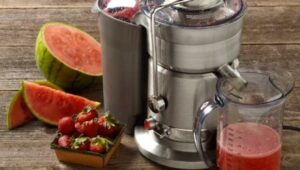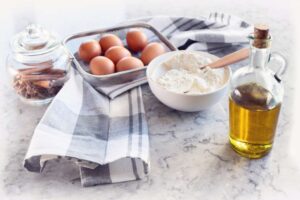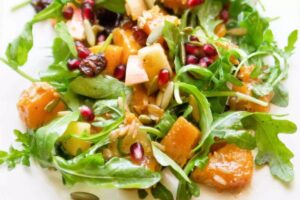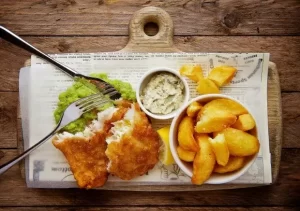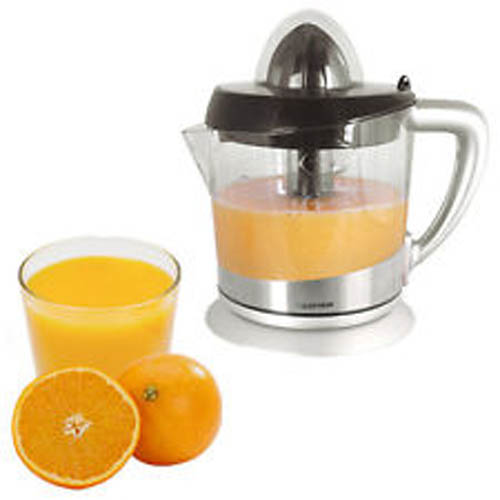
When it comes to enjoying a refreshing glass of orange juice, nothing beats the taste of freshly squeezed oranges. However, manually squeezing oranges can be time-consuming and tiresome. That’s where orange juicer machines come to the rescue! These handy kitchen appliances can extract the juice from oranges quickly and efficiently, making your morning routine a breeze. But with so many options available in the market, how do you choose the right orange juicer machine for your kitchen? This in-depth guide will walk you through everything you need to know to make an informed decision and find the perfect juicer that fits your requirements.
Choosing the Right Orange Juicer Machine for Your Kitchen
In this section, we’ll explore the key factors to consider when selecting an orange juicer machine.
1. Types of Orange Juicers
- Citrus Press Juicers: These juicers work by applying pressure on the citrus fruit to extract the juice. They are easy to use and perfect for juicing oranges, lemons, and limes.
- Centrifugal Juicers: While not specifically designed for oranges, centrifugal juicers can handle citrus fruits along with other fruits and vegetables. They use a high-speed spinning blade to separate the juice from the pulp.
- Masticating Juicers: Also known as slow juicers, masticating juicers crush the fruit and then extract the juice. They are more versatile and can process a wide range of fruits, including oranges.
2. Juice Yield and Pulp Control
Consider the juicer’s efficiency in extracting juice from oranges and its pulp control. Some juicers allow you to adjust the pulp level to your preference, ensuring you get the desired consistency in your juice.
3. Size and Capacity
The size of the juicer matters, especially if you have limited kitchen space. Additionally, check the juicer’s capacity to ensure it meets your household’s juicing needs without having to constantly refill.
4. Motor Power
The motor’s power directly influences the juicer’s performance. Opt for a juicer with a robust motor to handle tough oranges efficiently and ensure maximum juice extraction.
5. Cleaning and Maintenance
Nobody wants a juicer that’s a hassle to clean. Look for juicers with dishwasher-safe parts or those that are easy to disassemble and clean manually.
6. Durability and Warranty
Invest in a juicer made from high-quality materials to ensure longevity. Check the warranty provided by the manufacturer for added peace of mind.
7. Noise Level
If you prefer a quiet kitchen, consider juicers with noise-reduction features to minimize disturbances during the juicing process.
8. Safety Features
Safety is paramount, especially if you have children in the house. Look for features like safety locks and automatic shut-off to prevent accidents.
9. Juicing Speed
Some juicers operate faster than others, which can be a crucial factor if you’re always on the go and need your orange juice quickly.
10. Aesthetics and Design
If you’re conscious about kitchen aesthetics, choose a juicer that complements your kitchen’s design and adds a touch of elegance to your countertop.
Types of Orange Juicers
In this section, we’ll dive deeper into the different types of orange juicers and their unique features.
Citrus Press Juicers
Citrus press juicers are specifically designed to handle citrus fruits like oranges, lemons, and limes. They feature a simple design with a lever that you press down to extract the juice from the fruit. These juicers are easy to use, making them a popular choice for many households. They are ideal for those who primarily juice citrus fruits and prefer a straightforward juicing process.
Centrifugal Juicers
Centrifugal juicers are known for their high-speed spinning blades that shred fruits and vegetables, separating the juice from the pulp. While they are not specifically designed for oranges, they can handle citrus fruits with ease. These juicers are perfect for those who want a versatile appliance that can handle a wide variety of fruits and vegetables, in addition to oranges.
Masticating Juicers
Masticating juicers, also known as slow juicers, use an auger to crush the fruit and then press it to extract the juice. They operate at a slower speed compared to centrifugal juicers, resulting in less heat and oxidation, which helps retain the nutrients in the juice. Masticating juicers are the go-to choice for health-conscious individuals who want the highest quality juice from their oranges.
Juice Yield and Pulp Control
When choosing an orange juicer machine, one of the essential factors to consider is the juice yield and pulp control.
Juice Yield
The main goal of using a juicer is to extract as much juice as possible from the oranges. Look for a juicer that boasts high juice yield, ensuring you get the most out of each fruit. Some juicers are specifically engineered to optimize juice extraction from citrus fruits, making them a top choice for orange enthusiasts.
Pulp Control
Everyone has their preference when it comes to pulp in their orange juice. Some people love a pulpy texture, while others prefer a smooth and clear juice. The best juicers offer adjustable pulp control, allowing you to customize the pulp level according to your taste. Whether you like a little pulp or none at all, you can have it your way with the right juicer.
Size and Capacity
The size and capacity of the orange juicer machine are crucial factors, especially if you have limited space in your kitchen or if you regularly prepare juice for multiple people.
Size
Consider the dimensions of the juicer to ensure it fits comfortably on your kitchen countertop. If you have limited space, look for compact juicers that won’t take up much room.
Capacity
Evaluate the juicer’s capacity to determine how much juice it can hold at once. A larger capacity is ideal for families or those who frequently host gatherings and need to make larger batches of orange juice.
Motor Power
The juicer’s motor power plays a significant role in its performance and efficiency when juicing oranges.
High Motor Power
For juicing oranges, opt for a juicer with a high-powered motor. Oranges have a tough peel and fibrous flesh, so a robust motor will handle the task more effectively and ensure maximum juice extraction.
Low Speed Juicers
Masticating juicers, known for their slow-speed operation, also have powerful motors despite their slower RPM. This design ensures optimal juicing results and the retention of essential nutrients.
Cleaning and Maintenance
A juicer that’s easy to clean and maintain will make your juicing experience more enjoyable and hassle-free.
Dishwasher-Safe Parts
Look for juicers with dishwasher-safe parts, which will save you time and effort in cleaning. You can simply place the removable components in the dishwasher for a thorough wash.
Easy Disassembly
If the juicer isn’t dishwasher-friendly, make sure it’s easy to disassemble and clean manually. A juicer with fewer parts and smooth surfaces will be easier to wipe down and maintain.
Durability and Warranty
Investing in a durable orange juicer machine ensures it will last for years to come, providing you with countless glasses of freshly squeezed orange juice.
High-Quality Materials
Check the construction materials of the juicer. Stainless steel and BPA-free plastic are common materials known for their durability and resistance to staining and odor absorption.
Manufacturer’s Warranty
Review the warranty provided by the manufacturer. A longer warranty period signifies the manufacturer’s confidence in their product’s quality. It also offers you protection and support in case of any defects or malfunctions.
Noise Level
If you prefer a peaceful and quiet kitchen environment, consider the noise level produced by the juicer.
Noise-Reduction Features
Some juicers come with noise-reduction features that minimize the sound generated during operation. Look for models specifically designed to reduce noise, ensuring a more serene juicing experience.
Safety Features
Safety should be a priority when selecting any kitchen appliance, including an orange juicer machine.
Safety Locks
Juicers equipped with safety locks prevent accidental activation and ensure the juicer operates only when correctly assembled. This feature adds an extra layer of protection, especially if you have curious children at home.
Automatic Shut-Off
Certain juicers have automatic shut-off features that turn off the juicer when not in use or when it detects overheating. This safety mechanism helps prevent damage to the juicer and ensures your safety.
Juicing Speed
Juicing speed is a crucial factor, particularly if you have a busy lifestyle and need your orange juice quickly.
Fast Juicers
Centrifugal juicers are known for their fast juicing speed. They can extract juice rapidly, allowing you to enjoy your orange juice within minutes.
Slow Juicers
Masticating juicers operate at a slower speed to preserve the nutrients and minimize heat buildup. While they take a bit more time to juice oranges, the results are often worth the wait.
Aesthetics and Design
If you value aesthetics and want your juicer to complement your kitchen decor, consider the juicer’s design and appearance.
Sleek and Stylish
Many juicers come in sleek and stylish designs that add a touch of elegance to your kitchen countertop. Stainless steel finishes and modern lines are popular choices.
Color Options
Some juicers offer a variety of color options, allowing you to select a shade that matches or enhances your kitchen’s color scheme.
FAQs
Here are some frequently asked questions about choosing the right orange juicer machine:
Is it better to choose a masticating juicer or a centrifugal juicer for oranges?
Ans: Both types of juicers can effectively juice oranges. However, masticating juicers are generally preferred as they operate at a slower speed, minimizing heat and oxidation, and ensuring a higher nutrient retention.
How can I determine the juice yield of a juicer?
Ans: You can check customer reviews or product specifications to get an idea of the juice yield. Additionally, juicers with specific citrus fruit optimization are more likely to provide a higher juice yield.
Can I adjust the pulp level in my orange juice?
Ans: Yes, many juicers offer adjustable pulp control, allowing you to customize the pulp level in your orange juice according to your taste preferences.
What should I look for in terms of safety features in an orange juicer machine?
Ans: Safety locks and automatic shut-off features are essential for preventing accidents and ensuring the juicer operates safely.
Are orange juicer machines easy to clean?
Ans: Yes, many orange juicer machines come with dishwasher-safe parts or are designed for easy disassembly, making the cleaning process convenient and hassle-free.
Which juicer is best for a small kitchen with limited counter space?
Ans: If you have limited counter space, consider opting for a compact citrus press juicer, as they are generally smaller and take up less room.
Conclusion
Choosing the right orange juicer machine for your kitchen is all about considering your specific needs and preferences. Determine the type of juicer that suits you best, whether it’s a citrus press, centrifugal, or masticating juicer. Take into account factors such as juice yield, pulp control, size, capacity, motor power, cleaning and maintenance, durability, noise level, safety features, juicing speed, and aesthetics. By carefully evaluating these aspects, you’ll be able to find the perfect orange juicer machine that enhances your juicing experience and brings the joy of freshly squeezed orange juice to your home.

